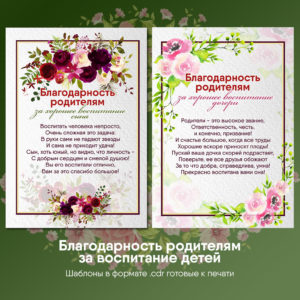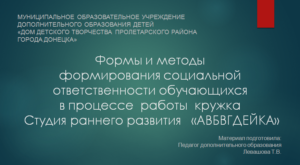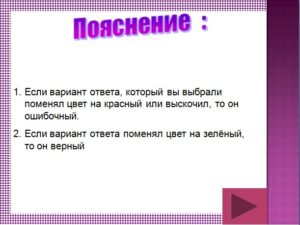primary-schooler
Ural-Akhtubinskaya SOSH
Goals:
1) to systematize and broaden students' knowledge of the state of our planet's nature; to uncover some environmental problems;
2) the formation of the image of the Earth as a human home;
(3) to show the importance and direction of international cooperation in the field of environmental protection;
4) promote responsible attitude towards nature; develop ecological culture;
Type of lesson:study of new material.
Equipment: computer, globe, information sheets, table "Signs of terrible disaster", ecological calendar.
Class progress
-
- Org. moment.
- The teacher's opening remarks.
There is a melody from the song “Star Country”, on its background – the poems of the teacher.
Oh, how often, looking in the sky,
We dream of conquering space.
And like the little princes, overnight
To other planets.
To be amazed at their power, their greatness,
Discover the secret of the sky.
And, of course, catch yourself thinking:
They cannot compare to our earth.
For us, Earthlings, there is no planet more beautiful than our native Earth.
It’s nice to know that we’re not alone in the universe. Who are our neighbors? Let’s make a small space trip with you and, having solved the crossword puzzle, remember our “neighbors”.
-
- Updating knowledge.
- The science of space bodies. (Astronomy)
- This planet has 17 satellites. (Saturn)
- The largest planet. (Jupiter)
- This planet revolves around the Sun, lying on its side. (Uranus)
- Glowing balls of gas like the sun. (Stars)
- Turquoise blue gas ball. (Neptune)
- The closest planet to the sun. (Mercury)
- The smallest planet. (Pluto)
- The size of this planet is equal to the Earth. (Venus)
- Scientists believed there was life on this planet. (Mars)
- A huge red-hot cosmic body. (Sun)
- A satellite of planet Earth. (Moon)
- Updating knowledge.
We made a small space trip and successfully returned to our planet Earth.
-
- Motivation.
(The teacher reads poetry with a globe in his hands.)
The most beautiful, dear,
Colorful, cheerful, lively,
You are like a mother to us, alone in the world,
We're your caring children.
But sometimes under our hands.
Your beauty disappears without a trace.
The mud suffocates the oceans.
Animals, birds, grasses are dying.
Wherever we live on the planet,
We're all responsible for your fate.
We're your assistants, friends,
We, Earth, are one family.
Guys, our Earth has heard us and it has something to say to us.
Voice of the Earth:
That was a long time ago. I woke up every morning and was happy. Have I ever been able to love or be happy? But she loved, loved the whole world, everything around: the sun, the sky, grasses, the murmur of rivers, the singing of birds. I loved created nature like a caring mother, loving my child.
I was so beautiful at the time.
The first man was born. At first, he felt like he was part of nature, but the mind I put into his brain turned out to be not just about creation, but about destruction. He began to enslave me, plants, animals. It tears my bowels to pieces and takes out my insides, fills my transparent blood with poisons, it blocks my veins with dams, strangles me with harmful gases, wounds me with atomic explosions. What was the once beautiful earth like? Did I create and nurture my own destroyer? You still have a little time to save me and yourself. I believe in your strength, in your mind and in good hearts.
- Guys, what happened to our planet? Why is she complaining?
-
- Communication of the topic and objectives of the lesson.
- Our planet is in trouble, its health is in danger.
The theme of our lesson is “The planet is sick.” Past and present through the eyes of an ecologist.”
- New material.
What threatens our planet Earth?
To find out, we will help the story of a scientist ecologist.
Open the textbook on page one. 48.
- How to protect the ocean from pollution?
- How to save the rainforest?
- How do you get rid of garbage?
What environmental problems did the ecologist tell us? What problems would you add?
1. Deforestation. 4. Garbage accumulation.
2. Animal deaths. 5. Air pollution.
3. Water pollution. 6. Soil poisoning.
(video showing)
- Who is to blame for all the causes of disease on the planet? (Man)
- It seems that people have forgotten one of the wisdoms that we are forever responsible for all who have been tamed. To all the animals, plants that live near us, to the river that runs in our city, to the planet on which we are lucky to live.
All of us on Earth cannot choose another planet, just as the Earth cannot choose another humanity. And A. Exupery was right, who warned: “We are all passengers of a large ship named Earth, so there is simply nowhere to get out of it.”
- What did the author of these lines mean?
- Therefore, the disease of the planet threatens the health and life of man.
- And before we take care of the health of the planet, we ourselves must be healthy and strong.
Fisminotka. (music)
- We've cleaned ourselves up, so how do we fix our planet?
Conservation.
- Our planet is huge, but each of us has its own plot - this is our yard, our street, our village. Learn to take care of them, put them in order, and the holiday will come.
- What conservation measures do you know about in our country?
? Reserves, reserves, national parks, Red Book
Video footage.
We see that measures are being taken to protect nature in our country. But is that enough to save the planet?
International cooperation
(a) People created boundaries, fenced off from each other, but they forgot that:
We all have one planet.
And the winds have no boundaries.
How there are no limits to the streams of light
And wild bird flights.
And we need to protect the planet.
For those who come after us.
And we're mindlessly sprinkling poisons
And we poison our house, not stingy.
(I. Lando)
- There are no boundaries in nature and only together can people save the planet and themselves. States shall concludeconventions.One such agreement- Convention on the Restriction of Trade in Rare and Endangered Species of Plants and Animals.
This document protects from the extermination of many animals in Africa, Asia, South America: monkeys, turtles, crocodiles, rhinos and elephants, which are destroyed for the sake of skins, horns, tusks.
- What is a convention?
- The following agreements were signed between the countries:
1. Agreement on Polar Bear Conservation.
2. Convention on Long-range Air Pollution.
3. Convention for the Protection of the Black Sea from Pollution.
4. Convention for the Protection of Wild Flora and Fauna.
5. International Convention for the Protection of Birds.
6. Convention to Combat Desertification.
(b) Various international organizations serving the cause of nature conservation have been created and are being created. One of them is the International Union for Conservation of Nature (IUCN). This organization publishes the International Red Book. The World Wildlife Fund was established. On its emblem is a bamboo bear – a panda.
Environmental calendar:
c) Creating your own organization.
Let's go.
Save the planet!
Throughout the universe
No more beautiful.
Throughout the universe
All alone!
What will he do?
Without us, she?
- I suggest that you create a conservation organization in your classroom. People are not judged by words, but by deeds. Come up with a name.
Students read poems:
Hello, planet!
Hello, Earth!
From now on we are your children and friends.
We're a big family now.
If we are to breathe air alone,
Let us all be together forever.
Let's save our souls!
Then we are on Earth and we will survive.
Outcome:
Our lesson has come to an end. Class grades.
Write down your homework. (pp. 47-53)
Presentation in .ppt format with a volume of 426 KB

{module Google_kvadrat}




